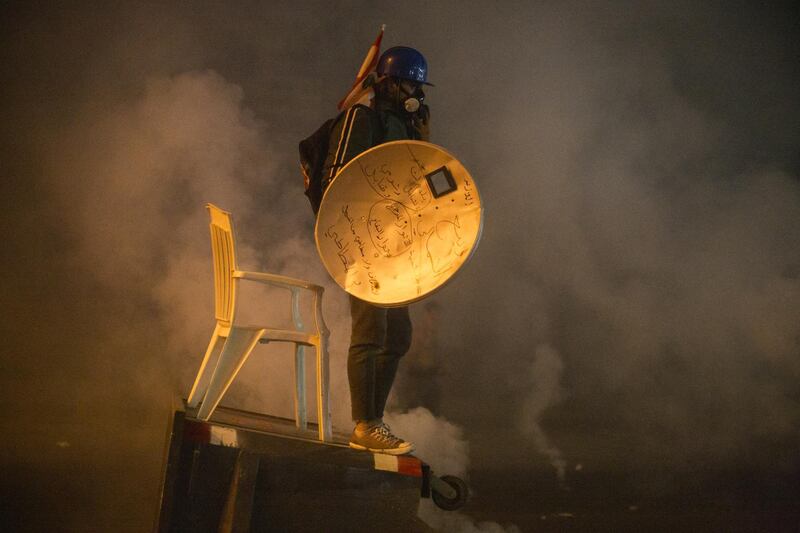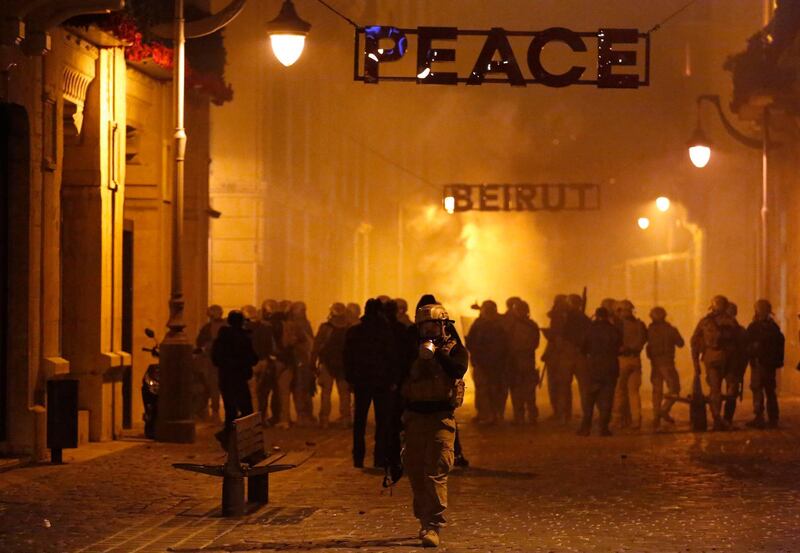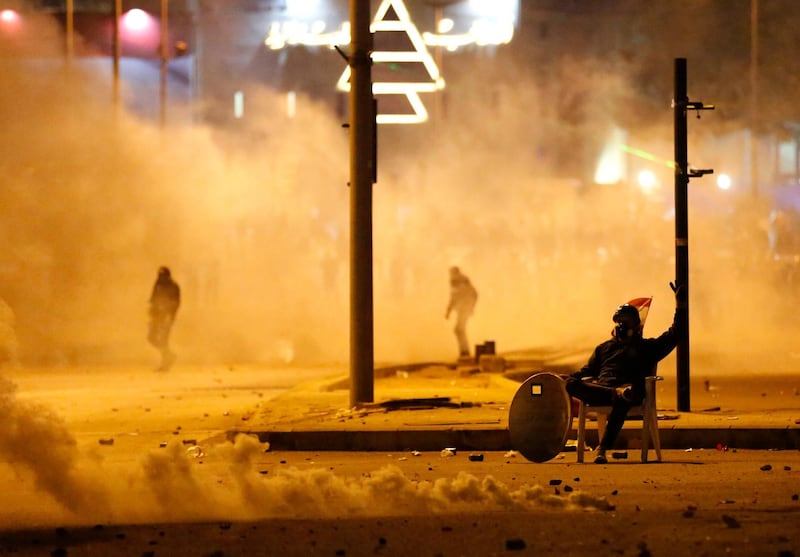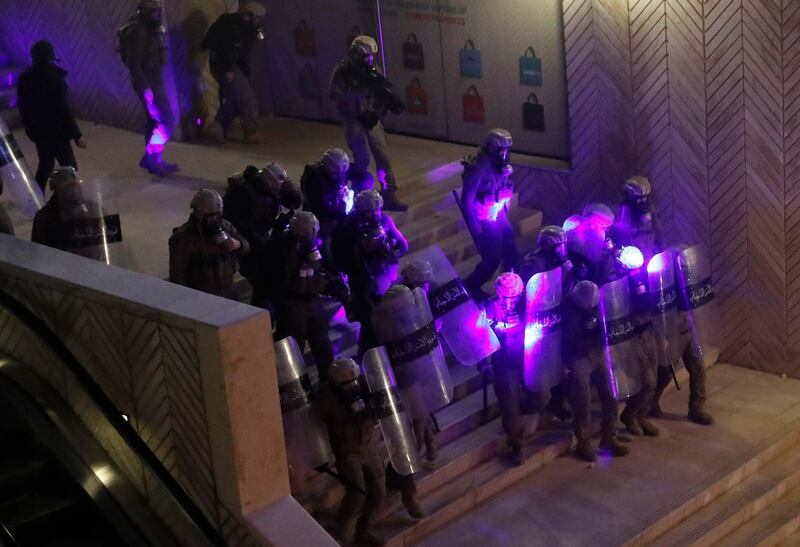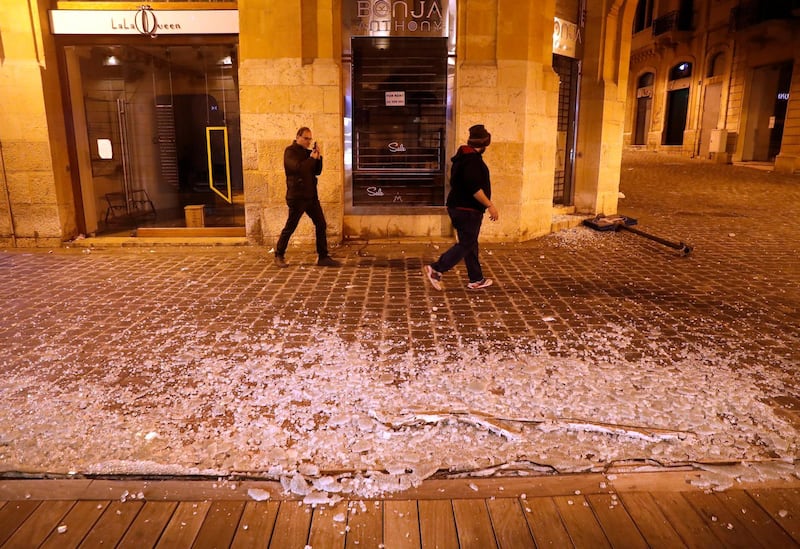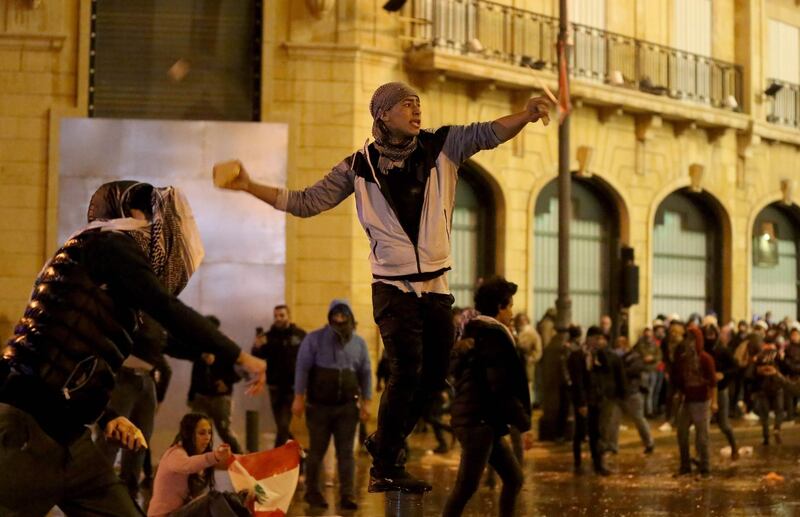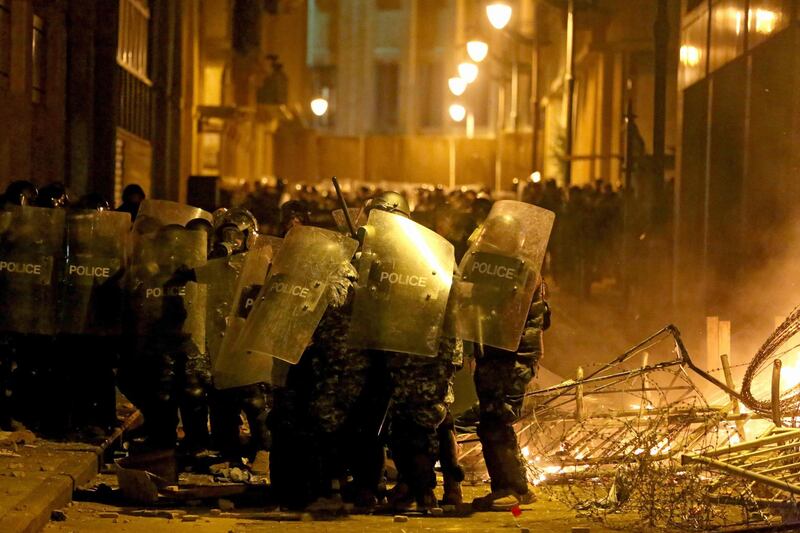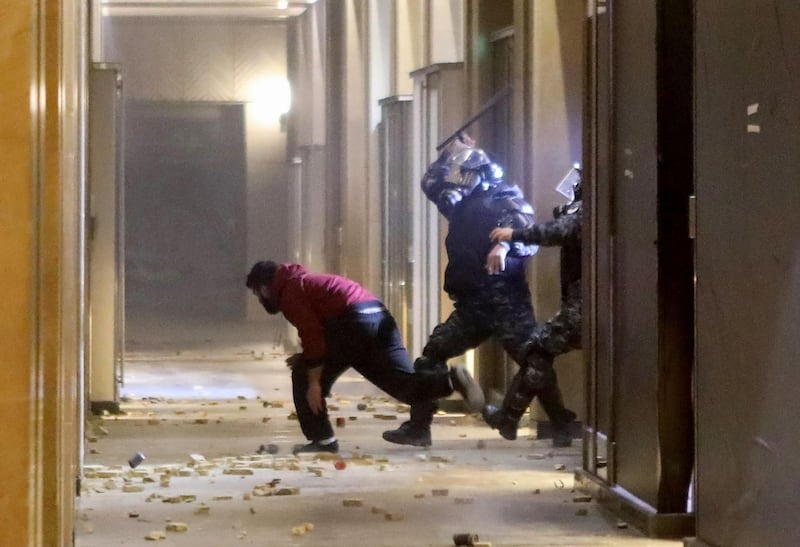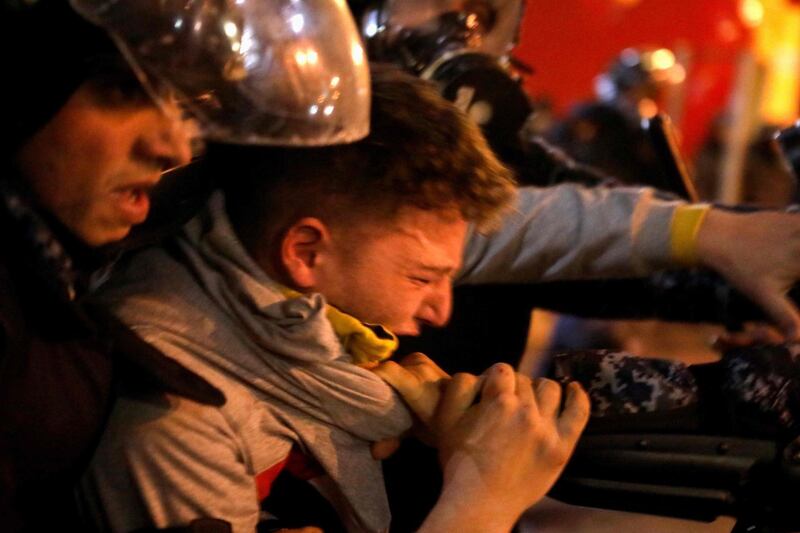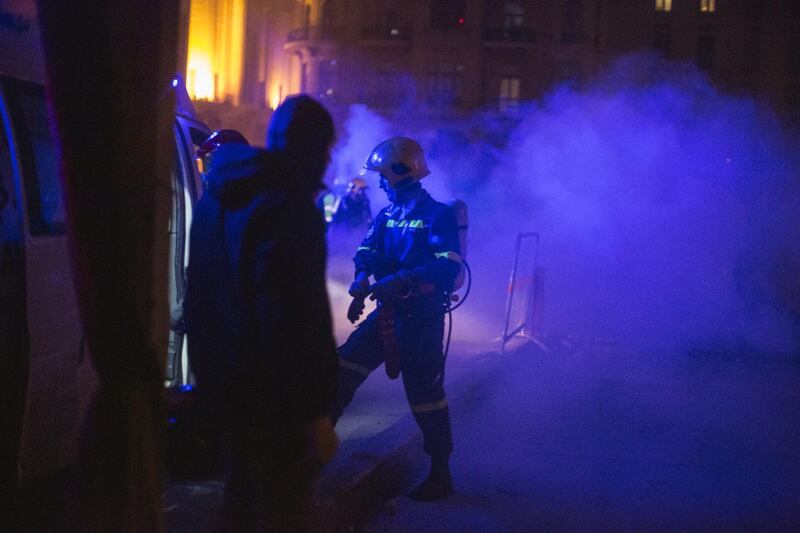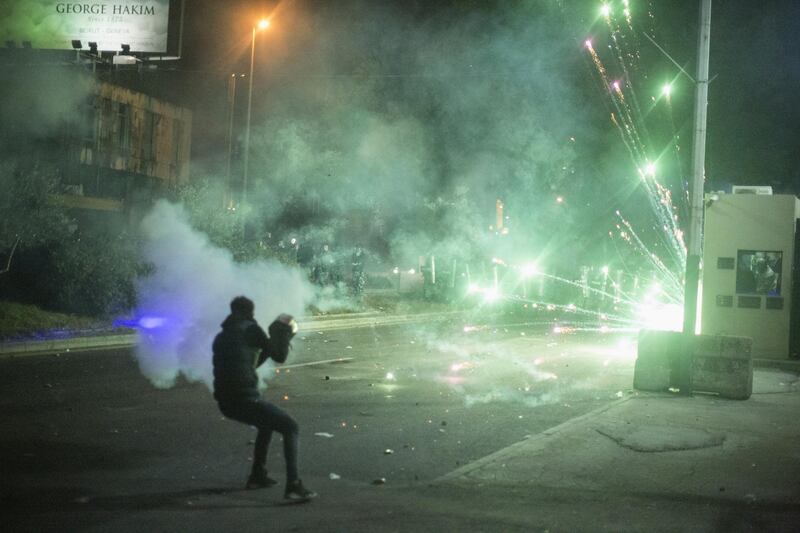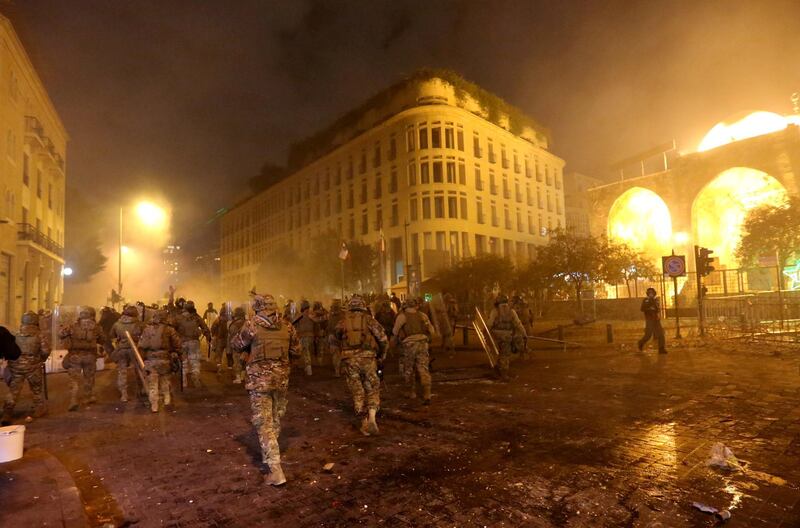After more than three months of protests, Lebanon's politicians agreed on a new government. But this has done little to ease anger on the streets.
Hassan Diab announced the formation of his 20-member government on Tuesday and vowed to get to work on fixing the country's mounting problems.
Lebanon faces a huge economic crisis – debt has topped $85 billion, growth is flat, unemployment is rising and the currency has lost nearly 40 per cent of its value in the past three months.
But his administration hasn't been welcomed on the streets of Beirut, where protesters are clashing most evenings with police.
One side is throwing rocks, debris and fireworks, the other is firing tear gas, rubber bullets and water cannon.
Dozens have been wounded on both sides.
On this week's Beyond the Headlines, The National's Willy Lowry reported from the tear gas-filled streets of Beirut. He spoke to young people angry at what they've called Mr Diab's "one-colour" government.
We also spoke to Nasser Saidi, a former Lebanese economy minister and former vice governor of the central bank of Lebanon. He laid out plainly the scale of the crisis and his recommendations of what the new government should do.
If you've not listened to last week's episode, check it out here.
After the death of Sultan Qaboos, Beyond the Headlines looked at the legacy of the canny negotiator and much-loved leader of Oman.

